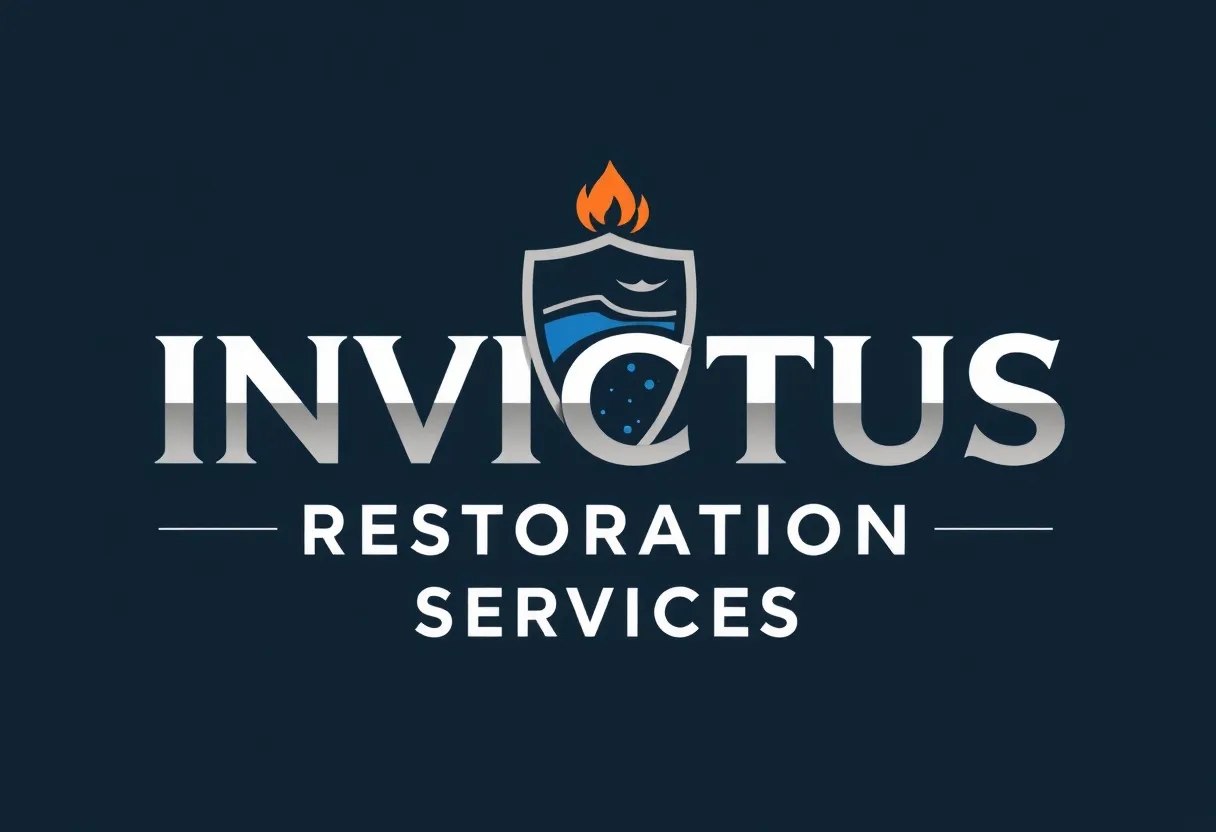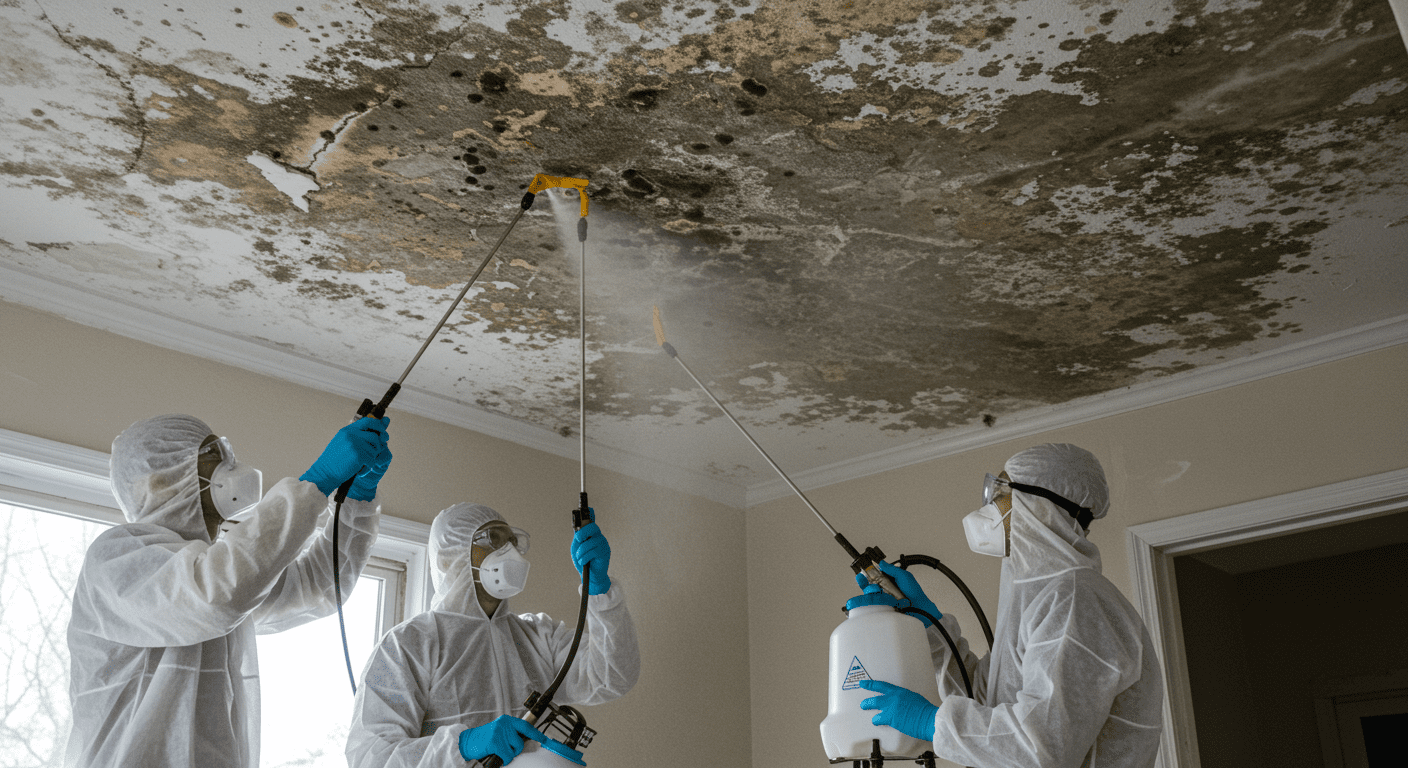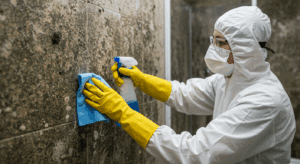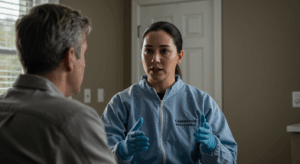Mold is a silent invader that can wreak havoc on your home and health if left unchecked. In Aurora, CO, where varying weather conditions create the perfect environment for mold growth, understanding and addressing this issue is crucial. This guide delves into the essential mold remediation procedures, helping you protect your property and loved ones from the adverse effects of mold.
Understanding Mold and Its Risks in Aurora, CO
What is Mold?
Mold is a type of fungus that thrives in damp, humid environments. It reproduces through tiny spores that float through the air, settling on surfaces where moisture is present. While mold plays a vital role in breaking down organic material in nature, its presence indoors can lead to significant problems. In Aurora, CO, the combination of seasonal humidity and temperature fluctuations makes homes particularly susceptible to mold infestations.
Health Risks Associated with Mold Exposure
Exposure to mold can lead to a variety of health issues, ranging from mild to severe. Common symptoms include respiratory problems, skin irritation, and allergic reactions. For individuals with asthma or compromised immune systems, mold exposure can exacerbate existing conditions. Prolonged exposure to toxic molds, such as black mold, can result in more serious health complications, underscoring the importance of timely mold remediation.
Signs of Mold Infestation in Your Home
Common Indicators of Mold Growth
Detecting mold early is key to preventing extensive damage. Some common signs of mold infestation include:
- A persistent musty odor.
- Visible black, green, or white spots on walls, ceilings, or floors.
- Peeling or bubbling paint.
- Increased allergy symptoms, such as sneezing or watery eyes.
If you notice any of these signs, it’s crucial to act quickly to prevent further spread.
Areas Prone to Mold Development
Certain areas in your home are more susceptible to mold growth due to their moisture levels. These include:
- Bathrooms and kitchens, where water usage is high.
- Basements and crawl spaces with poor ventilation.
- Around windows and doors with condensation.
- Areas affected by leaks or flooding.
Regular inspections of these areas can help you identify and address mold issues before they escalate.
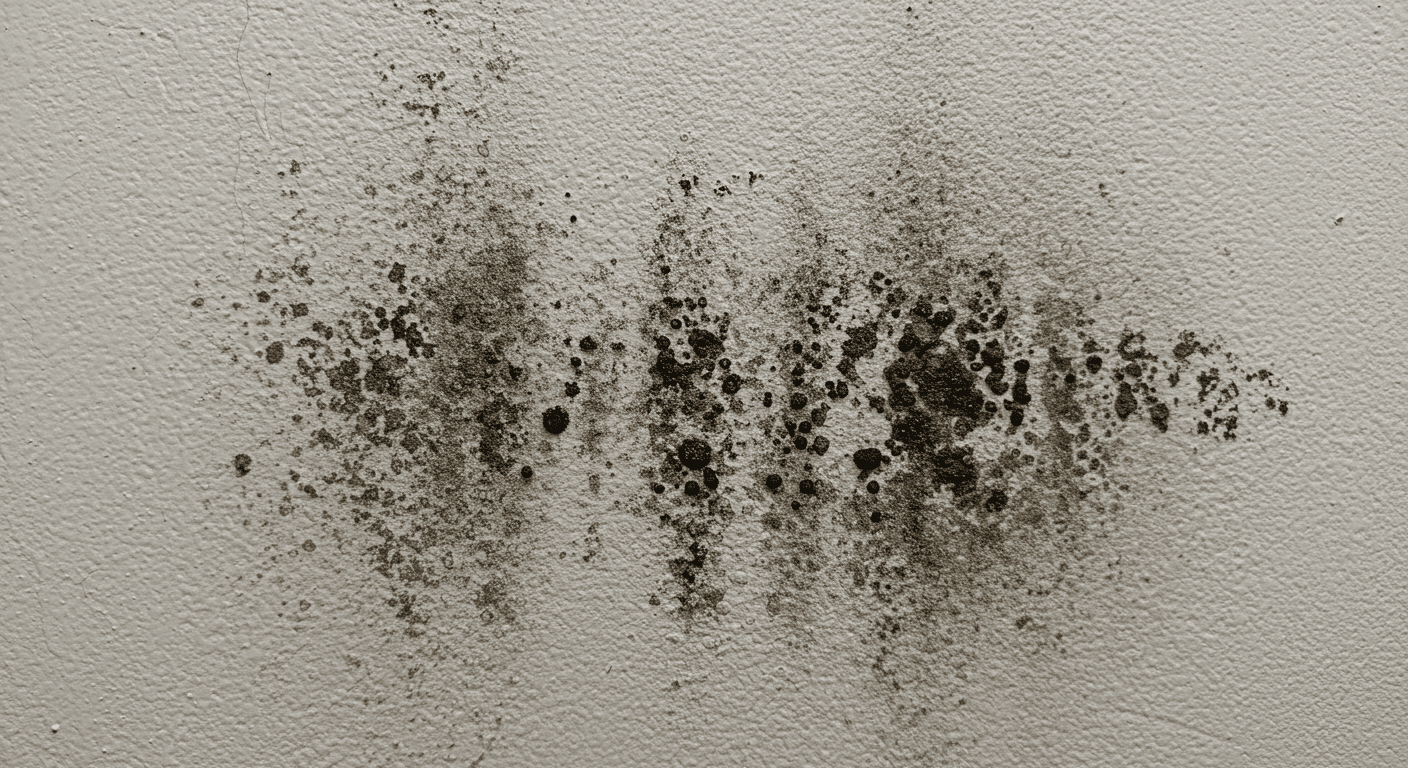
Professional Mold Remediation Procedures
Step-by-Step Mold Removal Process
Professional mold remediation involves a systematic approach to ensure thorough removal and prevention of future growth. The process typically includes:
- Inspection and Assessment: Identifying the extent and type of mold infestation.
- Containment: Isolating affected areas to prevent the spread of mold spores.
- Air Filtration: Using HEPA filters to remove airborne spores.
- Removal: Cleaning or discarding contaminated materials.
- Sanitization: Treating surfaces with antimicrobial solutions.
- Restoration: Repairing or replacing damaged structures.
Hiring a professional ensures that the remediation process is conducted safely and effectively, minimizing health risks and property damage.
Importance of Using Certified Technicians
Certified mold remediation technicians possess the expertise and equipment necessary to handle mold infestations of any size. They adhere to industry standards and safety protocols, ensuring a comprehensive and efficient remediation process. By choosing certified professionals, you can have peace of mind knowing your home is in capable hands.
For more information on expert mold control services, check out Expert Mold Control Services in Boulder, CO.
Preventing Future Mold Growth
Best Practices for Moisture Control
Preventing mold growth starts with controlling moisture levels in your home. Here are some effective strategies:
- Fix leaks in roofs, walls, and plumbing promptly.
- Use dehumidifiers in damp areas like basements.
- Ensure proper ventilation in bathrooms, kitchens, and laundry rooms.
- Install exhaust fans to reduce humidity levels.
By addressing moisture issues, you can create an environment that is less conducive to mold growth.
Tips for Maintaining a Mold-Free Environment
In addition to moisture control, adopting these habits can help keep your home mold-free:
- Regularly clean and dry areas prone to moisture.
- Use mold-resistant paint in high-humidity areas.
- Monitor indoor humidity levels and keep them below 60%.
- Conduct routine inspections to identify potential problem areas.
For a deeper understanding of mold prevention techniques, visit Effective Mold Remediation Techniques in Thornton, CO.
Mold remediation is not just about removing existing mold but also about preventing future infestations. By understanding the risks, recognizing the signs, and taking proactive measures, you can safeguard your home and health in Aurora, CO. If you suspect mold in your home, don’t hesitate to seek professional assistance to ensure a safe and thorough remediation process.
